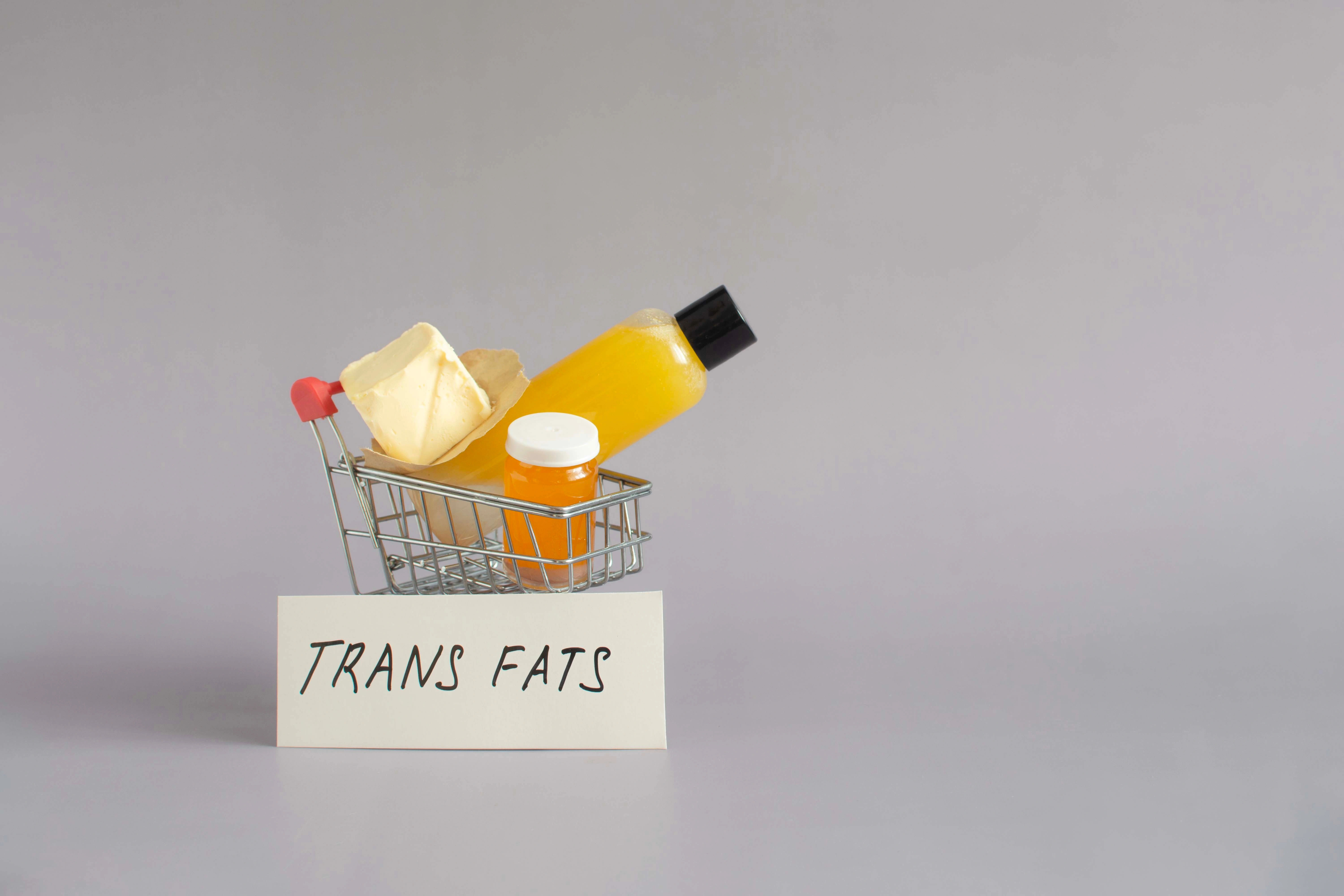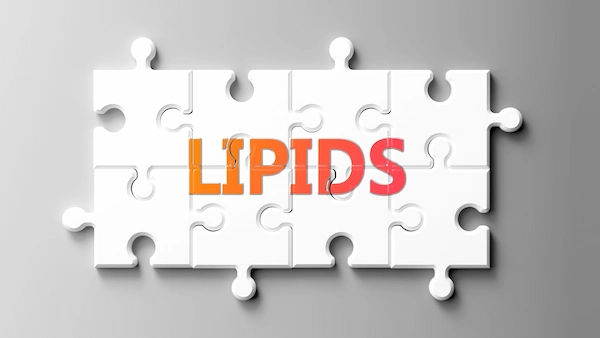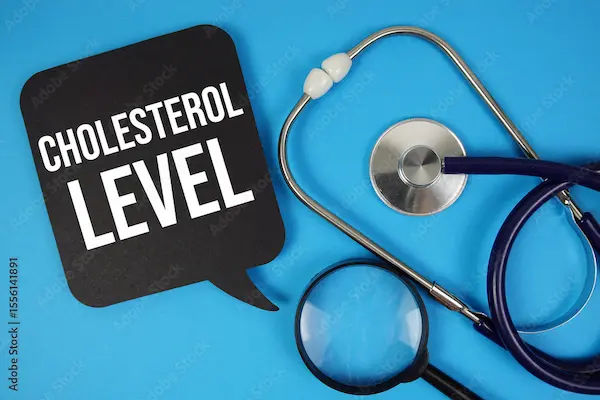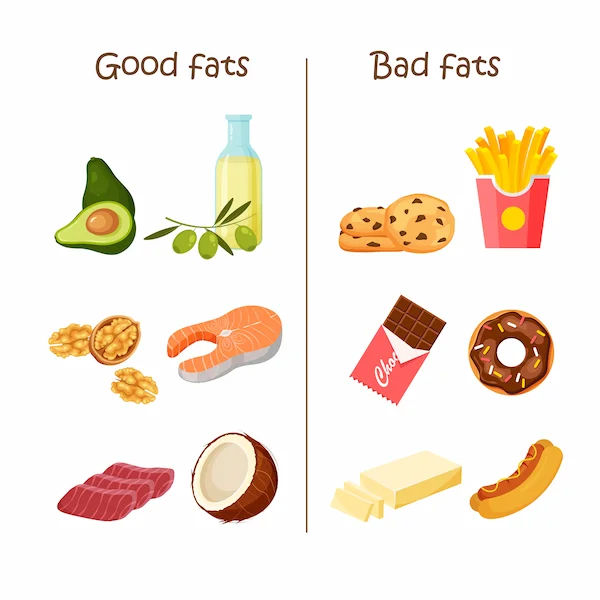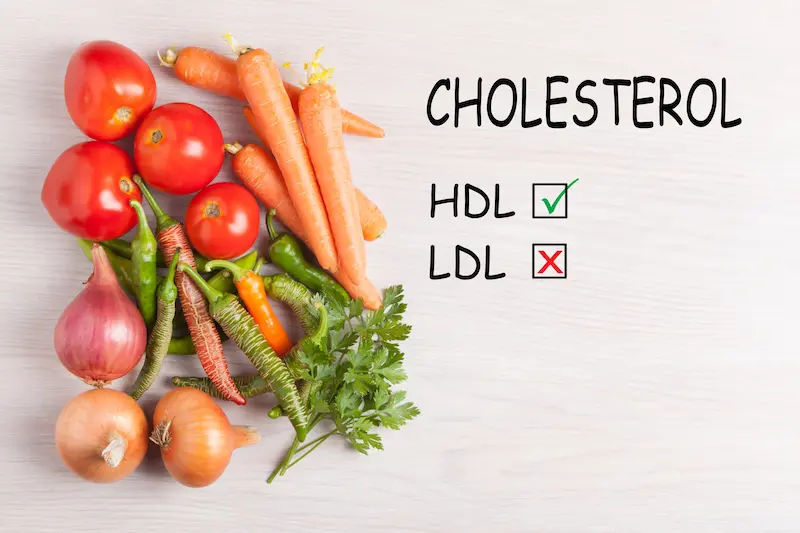Understanding Cholesterol
Understand cholesterol, its types, functions in the body, and how it affects your health. Learn about good vs. bad cholesterol and tips for maintaining healthy cholesterol levels.

Written by Dr. Rohinipriyanka Pondugula
Reviewed by Dr. Shaik Abdul Kalam MD (Physician)
Last updated on 13th Jan, 2026

Cholesterol. It’s a word we all know, often linked to warnings about heart disease and stern advice from doctors. But what is it, really? Is it always the villain it's made out to be? The truth is, cholesterol is a essential, waxy substance your body needs to build cells and make vitamins and hormones. The real issue isn't cholesterol itself, but the type and amount circulating in your bloodstream. This silent factor can quietly build up in your arteries for years without a single symptom, dramatically increasing your risk of heart attack and stroke. This comprehensive guide will cut through the confusion. We'll break down the difference between "good" and "bad" cholesterol, explain what your test numbers mean, and provide actionable strategies—from food choices to lifestyle tweaks—to help you take control of your heart health for the long term.
What Exactly Is Cholesterol?
Cholesterol is a lipid, a fat-like substance that is found in every cell of your body. It's not inherently evil; in fact, it's fundamental to your survival. Your body uses it to manufacture hormones like estrogen and testosterone, produce bile acids for digesting fats, and build the structure of cell membranes. The fascinating part is that your body produces all the cholesterol it needs on its own, primarily in the liver.
However, we also consume cholesterol through our diet, from animal-based products like meat, poultry, dairy, and eggs. This dietary intake adds to what your body is already producing. For most people, this combination can lead to levels that are higher than necessary, which is where the health concerns begin. It's less about the cholesterol in food itself and more about how the body processes it, particularly when combined with unhealthy fats.
The Liver's Natural Production
The liver is your body's cholesterol factory, producing about 80% of the cholesterol in your bloodstream. This production is tightly regulated by your genetics. For some individuals, their liver simply produces too much LDL ("bad") cholesterol due to inherited conditions like familial hypercholesterolemia, making lifestyle changes alone less effective and medication often necessary.
Dietary Sources of Cholesterol
While foods like eggs and shellfish contain dietary cholesterol, research has shown that for most people, the saturated and trans fats in your diet have a much more significant impact on raising blood cholesterol levels than dietary cholesterol itself. This is why current dietary guidelines focus on limiting saturated fats and avoiding trans fats rather than strictly counting cholesterol milligrams.
Lipoproteins Explained
Since cholesterol is a waxy fat, it can't dissolve in water or blood. To travel through your bloodstream to the cells that need it, it's packaged into tiny particles called lipoproteins. These particles are a combination of lipids (fats) and proteins. The type of lipoprotein determines whether cholesterol is helpful or harmful.
LDL (Low-Density Lipoprotein): The "Bad" Cholesterol
LDL transports cholesterol from the liver to your arteries. However, when there's too much LDL in the blood, it can slowly build up on the inner walls of the arteries that feed your heart and brain. This buildup, a hard substance called plaque, narrows the arteries and makes them less flexible. This process, known as atherosclerosis, is a primary driver of cardiovascular disease. If a clot forms and blocks a narrowed artery, it can lead to a heart attack or stroke.
HDL (High-Density Lipoprotein): The "Good" Cholesterol
HDL is the cleanup crew or the recycling truck. It acts as a scavenger, picking up excess cholesterol from your bloodstream and arterial walls and transporting it back to the liver, where it's flushed from the body. High levels of HDL cholesterol can actually lower your risk for heart disease and stroke. Lifestyle choices like regular aerobic exercise can effectively boost your HDL levels.
Triglycerides: Another Key Player in Heart Health
A standard lipid panel test also measures triglycerides, the most common type of fat in your body. They store excess energy from your diet. High levels of triglycerides, often found in people with high LDL and low HDL, can also contribute to the hardening of arteries, increasing your cardiovascular risk. High triglycerides are frequently linked to being overweight, eating a diet high in sugar and refined carbohydrates, and physical inactivity.
Why is High Cholesterol a Silent Threat?
The most dangerous aspect of high cholesterol is its stealth. It produces no headaches, fatigue, or noticeable symptoms. You can feel perfectly healthy while atherosclerosis progresses undetected for decades. This is why it's often called a "silent" condition.
The Process of Atherosclerosis (Plaque Buildup)
The process begins when the inner layer of an artery becomes damaged—due to high blood pressure, smoking, or high levels of LDL cholesterol. LDL particles seep into the artery wall, where they can become oxidized (like butter going rancid). This triggers
inflammation, and your body sends white blood cells to try to clean it up. These cells engulf the oxidized LDL, turning into foam cells that get stuck, forming a fatty streak on the artery wall. Over time, this streak grows into a complex plaque.
From Plaque to Heart Attack and Stroke
This plaque narrows the artery, reducing blood flow. Worse, some plaques have a thin, fragile cap that can rupture. If it ruptures, your body mistakes it for an injury and forms a blood clot to seal it. This clot can completely block the artery, stopping blood flow to part of your heart muscle (causing a heart attack) or your brain (causing an ischemic stroke). This is the catastrophic event that high, untreated cholesterol can lead to.
Consult Top General Physician
What Does Your Cholesterol Numbers Really Mean?
Getting a blood test called a lipid panel is the only way to know your cholesterol levels. The results are measured in milligrams per deciliter of blood (mg/dL). The American Heart Association provides general guidelines, but your doctor will interpret them in the context of your overall health.
- Optimal Cholesterol Levels by Age and Gender
- Total Cholesterol: Less than 200 mg/dL (Desirable)
- LDL Cholesterol: Less than 100 mg/dL (Optimal); 100-129 mg/dL (Near Optimal)
- HDL Cholesterol: 60 mg/dL and higher (Optimal, protective); for men, below 40 mg/dL is a risk factor; for women, below 50 mg/dL is a risk factor.
- Triglycerides: Less than 150 mg/dL (Desirable)
It's important to note that what is a good cholesterol level for a woman can differ slightly from men, particularly as HDL levels tend to be higher in women before menopause.
Understanding Your Overall Risk Profile
Your doctor won't look at your cholesterol numbers in isolation. They use them as a key piece of a larger puzzle that includes your age, blood pressure, smoking status, and whether you're on medication for high blood pressure. This holistic view helps determine your 10-year risk for a cardiovascular event and guides the intensity of treatment needed.
Uncontrollable and Controllable Risk Factors
Understanding what puts you at risk is the first step toward prevention. These factors are divided into those you can't change and those you can.
Genetics, Age, and Family History
You cannot change your genetics. If you have a parent or sibling with a history of early heart disease (before age 55 for men, 65 for women), your risk is higher. Your risk also naturally increases as you age. For men, risk increases after age 45. For women, risk increases after age 55. Certain races, like African Americans, also tend to have higher risks of high blood pressure and cholesterol.
Diet, Physical Activity, and Smoking
These are the levers you can pull. A diet high in saturated fats (found in red meat, full-fat dairy) and trans fats (found in fried foods, baked goods) is a major driver. So is a sedentary lifestyle, which lowers HDL. Smoking damages blood vessel walls, making them more susceptible to plaque buildup, and also lowers your HDL. Excess weight and diabetes are other major controllable factors that significantly influence your lipid panel.
How to Lower Cholesterol Naturally Through Diet?
For many, adopting a heart-healthy diet is the most powerful first-line defense against high cholesterol. It's not about one magic food, but an overall pattern of eating.
- Foods to Embrace: Fiber, Healthy Fats, and Plant Sterols
- Soluble Fiber: This type of fiber acts like a sponge in your digestive system, binding to cholesterol and helping to remove it from your body. Excellent sources include oats, barley, beans, lentils, apples, and citrus fruits.
- Unsaturated Fats: Replace saturated fats with heart-healthy monounsaturated and polyunsaturated fats. Think avocados, olive oil, nuts (almonds, walnuts), and fatty fish like salmon and mackerel, which are rich in omega-3 fatty acids.
- Plant Sterols and Stanols: These compounds, found naturally in plants, block the absorption of cholesterol in the gut. They are now added to certain foods like orange juice, yogurt drinks, and spreads.
- Foods to Limit: Saturated Fats and Trans Fats
- Saturated Fats: Reduce intake of red meat, butter, cheese, and other full-fat dairy products. Choose lean cuts of meat and opt for low-fat or fat-free dairy.
- Trans Fats: Avoid these completely. Check labels for "partially hydrogenated oils," even if it says "0g trans fat," as companies are allowed to round down. They are found in many fried foods, shortenings, and packaged snacks.
The Role of Exercise and Lifestyle Changes
Physical activity is a cornerstone of cholesterol management. Regular aerobic exercise—the kind that gets your heart rate up—has a direct and powerful impact:
- Boosts HDL: Exercise raises your levels of protective "good" cholesterol.
- Lowers LDL and Triglycerides: It helps your body clear fats from the bloodstream more efficiently.
- Aids Weight Management: Exercise helps you maintain a healthy weight, which is crucial for keeping all your numbers in check.
Aim for at least 150 minutes of moderate-intensity exercise (like brisk walking, cycling) or 75 minutes of vigorous exercise (like running, swimming) per week. Even small amounts of activity add up.
Cholesterol Medications
For some individuals, particularly those with a genetic predisposition or very high risk, how to lower LDL cholesterol naturally may not be sufficient to reach target levels. In these cases, medication is a vital and life-saving tool.
Statins and How They Work
Statins are the most commonly prescribed and effective class of cholesterol-lowering drugs. They work primarily by blocking a substance your liver needs to make cholesterol. This causes your liver to remove cholesterol from your blood. Statins also help your body reabsorb cholesterol from built-up plaques on artery walls, potentially stabilizing them and preventing them from rupturing.
Other Medication Options
Other drugs may be used if statins cause side effects or aren't enough. These include:
- PCSK9 Inhibitors: Injectable drugs that help the liver absorb more LDL cholesterol.
- Bile-Acid-Binding Resins: These drugs bind to bile acids in your gut, prompting your liver to use excess cholesterol to make more bile.
- Cholesterol Absorption Inhibitors: These medications limit the absorption of dietary cholesterol.
Conclusion
Understanding cholesterol is not about memorizing complex medical jargon; it's about grasping a fundamental concept of your health. This waxy substance, produced naturally and consumed through food, plays a dual role—it's both a vital building block and a potential silent threat when left unchecked. The journey to healthy levels is a lifelong commitment to informed choices. It begins with knowing your numbers through a lipid panel test and understanding what they mean in the context of your overall health. From there, you have immense power through your daily decisions: choosing oatmeal over a pastry, taking a walk instead of scrolling on the couch, and saying no to smoking. For some, this will be enough. For others, modern medicine like statins provides a crucial safety net. The goal isn't perfection, but consistent progress. Take action today: Schedule that doctor's appointment, review your diet, and take one step toward a more active life.
Consult Top General Physician
Consult Top General Physician

Dr. Vivek D
General Physician
4 Years • MBBS
Bengaluru
PRESTIGE SHANTHINIKETAN - SOCIETY CLINIC, Bengaluru

Dr Syed Mateen Pasha
General Physician
2 Years • MBBS
Bengaluru
PRESTIGE SHANTHINIKETAN - SOCIETY CLINIC, Bengaluru

Dr. Syed Ismail Ali
General Practitioner
7 Years • MBBS
Hyderabad
Apollo 24|7 Clinic, Hyderabad

Dr. Harshendra Jaiswal
General Physician/ Internal Medicine Specialist
12 Years • MBBS , MD (General medicine)
Kolkata
108 DHANA DHANVANTARI Clinic, Kolkata
(25+ Patients)
Dr. Thandra Ramoji Babu
General Physician/ Internal Medicine Specialist
5 Years • MBBS, DNB(General Medicine)
Warangal
Sai Ram multi-specialty hospital, Warangal
Consult Top General Physician

Dr. Vivek D
General Physician
4 Years • MBBS
Bengaluru
PRESTIGE SHANTHINIKETAN - SOCIETY CLINIC, Bengaluru

Dr Syed Mateen Pasha
General Physician
2 Years • MBBS
Bengaluru
PRESTIGE SHANTHINIKETAN - SOCIETY CLINIC, Bengaluru

Dr. Syed Ismail Ali
General Practitioner
7 Years • MBBS
Hyderabad
Apollo 24|7 Clinic, Hyderabad

Dr. Harshendra Jaiswal
General Physician/ Internal Medicine Specialist
12 Years • MBBS , MD (General medicine)
Kolkata
108 DHANA DHANVANTARI Clinic, Kolkata
(25+ Patients)
Dr. Thandra Ramoji Babu
General Physician/ Internal Medicine Specialist
5 Years • MBBS, DNB(General Medicine)
Warangal
Sai Ram multi-specialty hospital, Warangal
